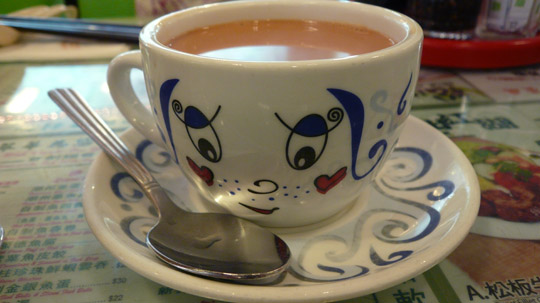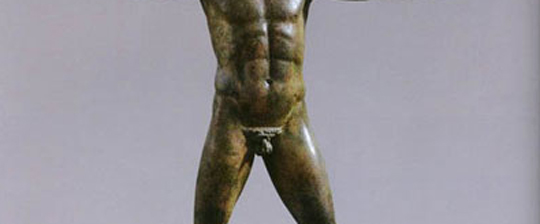» Archive for the 'pop culture' Category
Breaking Olympic News: Ancient Greeks Had Small Genitalia!
These past two weeks, every communication included something along the lines of “How are the Olympics,” or “hope you’re surviving the Olympics”. The answer: smothering, and just barely.
Now that they have concluded, I feel that ominous burden slowly melting from my psyche, and I realize that I was truly not “coping well” with the games. I was instead lying low, playing dead, unable to watch or even comment on this historic event. Instead, I escaped the steamy red and yellow fervor emanating from the Bird’s Nest stadium by flying off to Yunnan province, a necessary act of “self-protection” (a Chinese pun on “avoiding the Olympics” and “contraception”) but the fervor pursued.
The NYT headlines mocked me in my inbox, conflicting and paradoxical news “angles” from American and Chinese news sources accumulated, champions wept or chomped on their lead-tinged gold medals over the endless highlights montages that were repeating on televisions across China, on every CCTV station, in the airport, in the bus station, waiting for elevators…
From 29, 49, to 51 gold medals––this news tracked me down even at 2000+ meters above sea level. Perhaps it wasn’t altitude sickness at all that left me vomiting in the bathroom. The record-breaking conclusion of the games was a victory for the Chinese spirit, for which I extend my true congratulations.
After returning to Beijing, and while browsing one of my favorite stress-relieving Chinglish sites, the Century Online China Art Networks, my “unprotected” eyes were despoiled by an unusual, but seemingly Olympics related headline: “Why does so much ancient Greek art feature males with small genitalia.” An English article posted on August 22, 2008 and signed “CL2000.com.” Here, among Beijing exhibition reviews, a feature on Buddhist sand mandalas, and a piece on the Jewish Museum, was this seemingly out of place reportage on the heft and quality of ancient Greek genitals as evidenced in statuary. (more…)
Posted in pop culture, writings | 1 Comment »
Diary of the Spectacle
by Lee Ambrozy (post from ArtReview.com)
On a day of orgasmic auspiciousness in China, 08/08/08, crowds piled into bars, parks, official ‘fanzones’ outside the Olympic stadium and the old Workers’ stadium, and along Beijing’s ancient north-south axis to watch the opening ceremony collectively on big screens and get the best view of Cai Guo-Qiang’s city-wide fireworks display (they would be the only ones to see the real real fireworks, rather than the computer graphics that appeared on TV). But far removed from these displays of patriotism, and perhaps soured by an already suffocating ‘Olympic spirit’, most of us in Beijing’s artworld chose to scrutinize the ceremonies from our couches.
Still, with cultural giants Zhang Yimou (celebrated director of House of Flying Daggers (2004)) and ace fireworker Cai Guo-Qiang, fresh from his huge exhibition at the New York Guggenheim, behind this production, our expectations were almost as high as the $300 million budget. Responses from the intellectual and creative communities in China were quick and overwhelmingly negative. On his blog, Ai Weiwei, design consultant on the Bird’s Nest and now an outspoken critic of the government in the run up to the games, called it ‘an encyclopedic display of a spiritual consciousness fallen into enemy hands’.
The Chinese know how to exploit manpower, and communism loves its gala performances. Zhang Yimou seemed to be borrowing the techniques of North Korea’s Arirang Mass Games (recently photographed by Andreas Gursky): using people-as-pixels to form staggering, intimidatingly huge collective images in which the individual is subsumed entirely, yet still crucial to the perfection of the big picture.
continue reading here
Posted in pop culture | No Comments »
Two Angles on the Ceremony

See sina.com’s slideshow of opening ceremony photos here, baidu’s ceremony home page here.
Image above from NYT’s slideshow, see it here.
Posted in pop culture | No Comments »
An Elegy for 798
The following lament for the 798 arts district is featured on artforum.com.cn under angle.
 The games are approaching, and China’s most infamous arts district is being scrubbed and shined to make way for tourist traffic. The reality of the immense changes that have occurred here over the past few years now lies below a new layer of concrete and the Italian leather sandals of al fresco diners. This maturation has been rapid and thorough, but for all the media gushing over 798, few have taken time to ponder the effects of her changes, or in what way they have been ministered by her new nanny, the “Beijing 798 Art District Office of Construction Management.”
The games are approaching, and China’s most infamous arts district is being scrubbed and shined to make way for tourist traffic. The reality of the immense changes that have occurred here over the past few years now lies below a new layer of concrete and the Italian leather sandals of al fresco diners. This maturation has been rapid and thorough, but for all the media gushing over 798, few have taken time to ponder the effects of her changes, or in what way they have been ministered by her new nanny, the “Beijing 798 Art District Office of Construction Management.”
The “798 Management” office is an office representing the interests of the Beijing Municipal and Chaoyang District governments and the Seven Stars Group. Seven Stars is not a constellation or group of celestial bodies, it is the electronics conglomerate heir to the original factories, and the property management group that now rents to the galleries in 798, comprised of factories 700, 706, 718, 797, 798, and 707. Six factories. Where is the seventh? Maybe the last star is you, or harmony, or maybe it stands for “art zone” with Chinese characteristics.
Established in 2001, in part to deal with factories vacated since being rendered irrelevant by changing electronics technology, Seven Stars was happy to rent to people such as Sui Jianguo the sculptor, Hong Huang the publisher, Liu Suola the composer and many others who began moving in around 2001. Then, the entire area seemed distant and dilapidated, although its former glory was quietly echoed in East German designed Bauhaus style factories. In the mid-1950s this area was the highly celebrated “Factory 718” complex, the national standard in integrated and efficient production, and a model for similar factory complexes across the nation. It is said that Factory 718 was a household name, reaching heights of production amidst swells of socialist ideological hype that encouraged the embrace of industry.
Reverberating with its past fame, 718 has been reincarnated as 798, and sits atop tourist “top ten” lists. One of the government’s “development zones” of the new cultural variety, 798 is prided as a model of official tolerance for artistic expression, as evidence of the booming “cultural industries” and touted as a “healthy” tourist location spotlighting “contemporary culture” where visitors can snap photos of themselves amidst steaming, peeling pipes or shiny fiberglass sculptures, embodying the contrast of a proud industrial heritage with a booming contemporary art scene. 798 has emerged as a media-friendly archetype of the contradictions that define modernizing China. Or does it define something else? (more…)
Posted in art, pop culture | No Comments »
Your secret weapon for Chinese visa success
 In these heady days leading to the Summer Games, many “foreign friends” in China and would be visitors are perplexed be the sudden difficulties in obtaining and extending their visas. Indeed, China’s crackdown and imitation of the US Government’s visa policies seems an illogical strategy for a nation on the verge of her debutante ball, even more so when inflation seems almost solely propelled by lusty visions of foreign visitors paying 40 RMB (~5.50 USD) for a cup of swill-piss coffee. Nevertheless, there are rules and conventions in every culture and nation, and with China so eager to enforce hers, international friends should bone up on a more “native” approach to red tape and visa paperwork. Herein lies the soundest advice I can give for anyone who approaches one of the low, laminate countertops that shield the forces of the Chinese bureaucracy: you need yin for yang, something to slake the thirst of the inexplicable administrative madness going on behind those counters. You’ve accepted the mission, now your secret weapon? MY CLEAR BAG.
In these heady days leading to the Summer Games, many “foreign friends” in China and would be visitors are perplexed be the sudden difficulties in obtaining and extending their visas. Indeed, China’s crackdown and imitation of the US Government’s visa policies seems an illogical strategy for a nation on the verge of her debutante ball, even more so when inflation seems almost solely propelled by lusty visions of foreign visitors paying 40 RMB (~5.50 USD) for a cup of swill-piss coffee. Nevertheless, there are rules and conventions in every culture and nation, and with China so eager to enforce hers, international friends should bone up on a more “native” approach to red tape and visa paperwork. Herein lies the soundest advice I can give for anyone who approaches one of the low, laminate countertops that shield the forces of the Chinese bureaucracy: you need yin for yang, something to slake the thirst of the inexplicable administrative madness going on behind those counters. You’ve accepted the mission, now your secret weapon? MY CLEAR BAG.
“Business. School. Home.
Collection Information. Communication.
Shopping. Driving. Playing. Presentation.”
Helpful suggestions for its use are printed right on top of this “simple” document folder. Your lucky amulet comes in five pastel colors, each one bearing a white printed grid, the above “poem” outlining its function, and that discriminating title, those three conspicuous words: MY CLEAR BAG.
If life were a video game, MY CLEAR BAG would be the weapon that you buy with accumulated coins, or the talisman you steal from some dead guy. But, thankfully, this is China, a peaceful nation with some special socialist tendencies, and there are plenty for all! In a nation that loves homogeneity and inconspicuous behavior as much as China, there is no better tool to help you blend in. You can––and you should––buy one from your corner store.
Traditional Chinese philosophy stresses balance: bringing down the heat, restoring harmony. My Clear Bag is your antidote, your leverage for confronting an incomprehensible and opaque Ministry of Foreign Affairs. Imagine the brutalist monoliths that are Beijing’s governmentbuildings, imaging what is tucked behind those endless rows of black windows; the bureaus and the leaders that survey them, the constantly changing rules they make and break. Imagine now My Clear Bag––it is in your hand as you approach one of the many service counters that breech the Ministry with the comparably prostrate public––you use it to approach the human face of this bureaucracy. Your face is forgettable, and probably not as symmetrically pleasing as the My Clear Bag you carry. Place it unassumingly on the desk and revel in its purpose and its methodology: it is transparent, and compact, its function is obvious, self-explanatory, intuitive. It stands in diametric opposition to all of the nastiness inside. Your officer picks it up for inspection. Nestled inside your Clear Bag, nothing can be lost, nothing will fall through the cracks.

Simply the sight of My Clear Bag unconsciously brings peace to whomever you encounter behind the desk, just as a cool cucumber soothes the fires of a spicy hot pot, it calms the soul of this officer. In contrast to their life “within the machine”, the rules of My Clear Bag are simple and easy to follow, and they do not change seasonally with campaigns nor with national holidays. Protocol is obvious and perfunctory. Of course, Everyone’s Clear Bag is exactly the same, with no exceptions. Unlike that Audi A6 with mandatory leather-seats and a quilted tissue box on the dashboard that may or may not be parked outside of the building, there is no “VIP” Clear Bag. No, there is one bag for all, at one price, and with limited variations––that Clear Bag of mine is a tested, true classic model of Marxist socialism.
Of course, the contents My Clear Bag can vary. At more “official” times such as border crossings their contents should include your passport, little stacks of I.D. photos paper-clipped together and––as any experienced My Clear Bag operator should know––photocopies of each document. These contents are stacked in ascending or descending order of importance, depending on your mission. Larger assignments (applying for a Chinese university) would do well to include a typed table of contents.
Approaching any counter á la My Clear Bag is to say in a nonverbal language that you are a law-abiding, trustworthy candidate. It becomes the missing semiotic link between your inevitable success and your visa officer. By toting My Clear Bag, you are demonstrating highly prized values of “healthy thought”: you revere simplicity, you are well organized and respectful of your opportunity to inquire about a little visa from the big bureaucracy. You don’t fly ahead of that flock, and don’t worry, no one’s going to sacrifice you to scare the monkeys. You also know the virtues of being economical, because you bought My Clear Bag for 1.5RMB. This bag can truly change your life.
Posted in pop culture, writings | 5 Comments »
Impressive Pet photography
 Check out the look on this dog’s face: the consternation, the polo shirt. I wouldn’t be surprised if he has his own start up company, or tickets to the 2008 Opening Ceremony.
Check out the look on this dog’s face: the consternation, the polo shirt. I wouldn’t be surprised if he has his own start up company, or tickets to the 2008 Opening Ceremony.
Click on “read more” to see this dog’s head shot.
Thanks to Joey Guo at the Beijinger for the photos, and his interest in cute puppies. (more…)
Posted in pop culture | No Comments »
“Socialism is Great!”

“Socialism is Great” is a coming-of-age tale to be sure, but also a good example of memoir writing from an exceptional person living through some extraordinary times. “Socialism is Great” tells of things great and small: a girl becoming a woman and China shedding its socialist shell. It opens doors on a frugal family and its persistence in life, and the gates of the state-owned factory class as it plods to extinction. Along the way are lovable and despicable characters, all drawn to–or repelled by–our heroine Lijia as she careens through her own mind, trying as she must to keep her ambitions and lust contained behind “the strangest pair [of glasses she] could find in town.”
“Socialism is Great” is a fast read, is passionate and hopeful. Happily, unlike many other memoirs from China it doesn’t end with an escape abroad. In this sense, it captures the spirit of the 80s, as the heroine’s forward momentum brings readers to new depths and acts of bravery, she brings to life a whole new side of China, all without wallowing in self-pity. As she matures, she comes into mature experiences that make this book inappropriate for young audiences, but which definitely left me surprised at the depth of emotion of factory workers and “simple” laborers all.
All in all, this is a new voice to enrich the canon of memoirs from China, it marks the advancement away from the reminiscing over the cultural revolution, and represents one among China’s newest generation of international, accomplished writers.
Book Talk: “Socialism Is Great!” by Zhang LijiaWed June 18, 19:30-21:00
Venue: CCC Learning Centre, Chinese Culture Club, Anjialou, No.29, Liangmaqiao Road, Chaoyang District.
Price: RMB 20 (symbolic charge for drinks and snack) (more…)
Posted in books, pop culture | No Comments »
documentary film review: BingAi

Like a Kernel of Corn… a review of director Feng Yan’s non-fictional account of a strong-willed female farmer and a close up look at policy and subsistence farming in Hubei. A million thanks to Alice Wang for her article! Alice is a literary translator and currently editor of art forum’s Chinese site. Her contribution to sinopop is much appreciated, for English readers interested in the film, read a review here on variety.com.
Posted in film, pop culture | No Comments »
You Know You’ve Left Asia When…
 I’ve left the land of kimchee for a world of almdudlers. I’ve arrived in Berlin, Pan Pan, Liu Zhizhi and myself. Our mission is to curate a show for Beijing on German design, young, fresh designers. We’re having as much fun as those almdudlers you see on that empty bottle.
I’ve left the land of kimchee for a world of almdudlers. I’ve arrived in Berlin, Pan Pan, Liu Zhizhi and myself. Our mission is to curate a show for Beijing on German design, young, fresh designers. We’re having as much fun as those almdudlers you see on that empty bottle.
Posted in pop culture | No Comments »
















